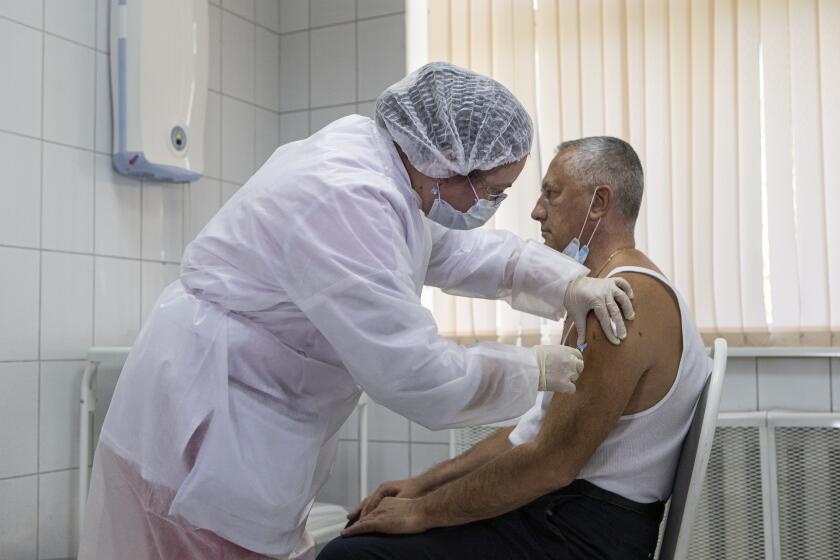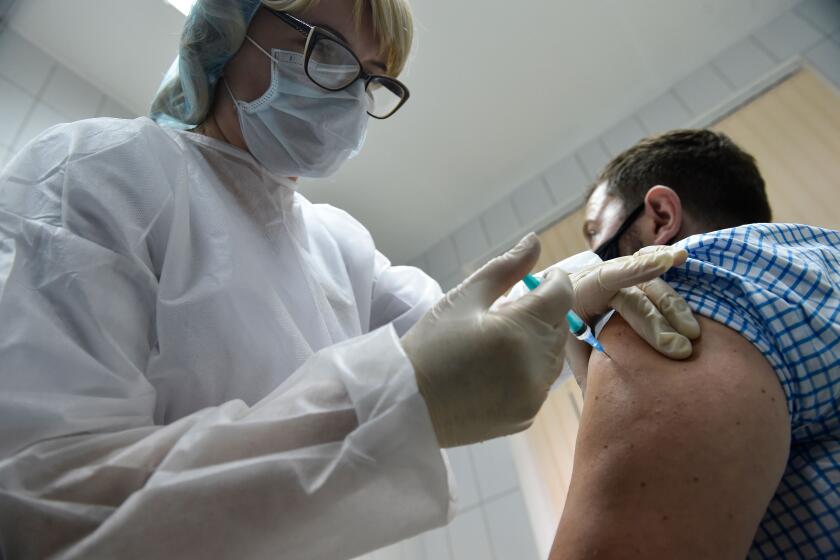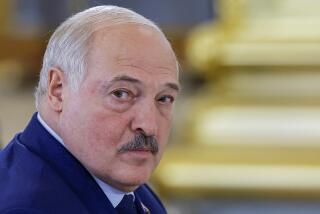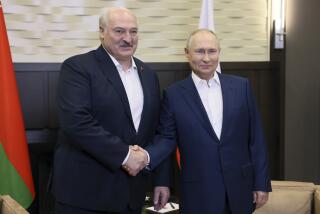Belarus, Argentina become first countries outside Russia to roll out Sputnik V vaccine
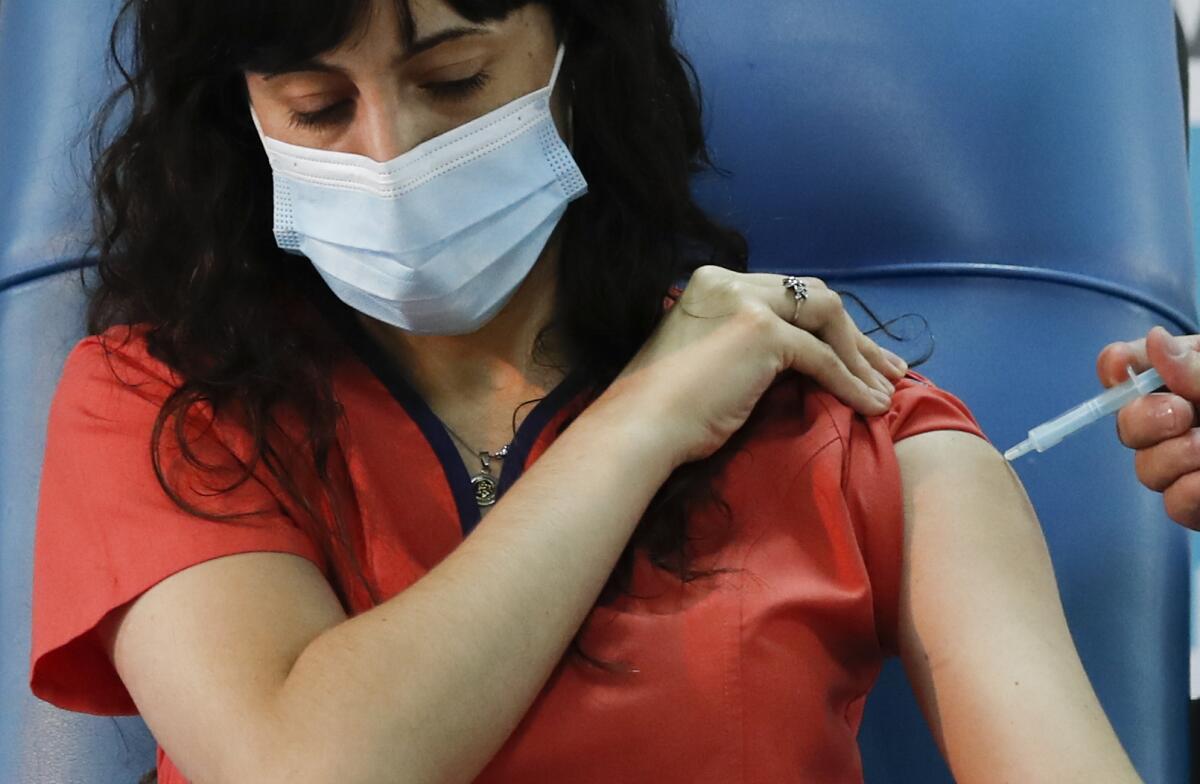
- Share via
MOSCOW — Belarus and Argentina launched mass COVID-19 inoculations with the Russian-developed Sputnik V shot Tuesday, becoming the first countries outside Russia to roll out the vaccine, which has faced criticism over the speed with which it was approved.
The first batch of Sputnik V arrived in the former Soviet republic Tuesday, according to a joint statement by the Belarusian Health Ministry, the Russian Health Ministry and the Russian Direct Investment Fund, which bankrolled development of the vaccine. The Belarusian Health Ministry posted pictures on social media of people getting the shots.
“A new stage starts in Belarus today with mass vaccinations against COVID-19. Medical staff, teachers, and those who come into contact with a lot of people due to their jobs will be the first to get vaccinated. Vaccination will be entirely voluntary,” Health Minister of Belarus Dmitry Pinevich was quoted in the statement as saying.
Hours later, a similar campaign kicked off in South America as Argentine medical workers began receiving the Russian vaccine, with officials insisting that it was safe. President Alberto Fernández called it the largest vaccination campaign in the country’s modern history.
Teachers, those with underlying medical conditions and people over 60 were to be next in line in Argentina, which so far has received 300,000 doses of Sputnik V. As in Belarus, the vaccinations will be free and voluntary.
Argentina, a country of 45 million people, has recorded nearly 1.6 million coronavirus infections and almost 43,000 deaths.
Developers of Sputnik V, Russia’s experimental COVID-19 vaccine, say early data suggest that it is 92% effective, but skeptics raise questions.
Belarus conducted its own trial of Sputnik V among 100 volunteers and gave the shot regulatory approval Dec. 21, two days before Argentina did.
Russia has been widely criticized for giving the Sputnik V regulatory approval in August after the vaccine had been tested on only a few dozen people. An advanced study among tens of thousands started shortly afterward.
Despite warnings to wait for the results of the larger study, Russian authorities started offering it to people in high-risk groups, such as medical workers and teachers, within weeks of approval.
Belarus has reported nearly 190,000 confirmed coronavirus cases and about 1,400 deaths since the start of the COVID-19 pandemic, but many in the Eastern European nation of 9.4 million people suspect that authorities are manipulating statistics to hide the true scope of the country’s outbreak.
It could be a while before U.S. efforts to develop coronavirus vaccines benefit the developing world. China and Russia are trying to fill the void.
President Alexander Lukashenko, who has faced months of demands by protesters to step down after an August election they say was fraudulent, has cavalierly dismissed the coronavirus. He shrugged off fears and lockdowns in other countries as mass “psychosis” and advised citizens to avoid catching it by driving tractors in the field, drinking vodka and visiting saunas.
His attitude has angered many Belarusians, adding to the public dismay over his authoritarian style and helping to fuel months of post-election protests.
Opposition figures say Lukashenko’s government has allowed COVID-19 to run rampant in jails where authorities have detained thousands of protesters.
More to Read
Sign up for Essential California
The most important California stories and recommendations in your inbox every morning.
You may occasionally receive promotional content from the Los Angeles Times.
